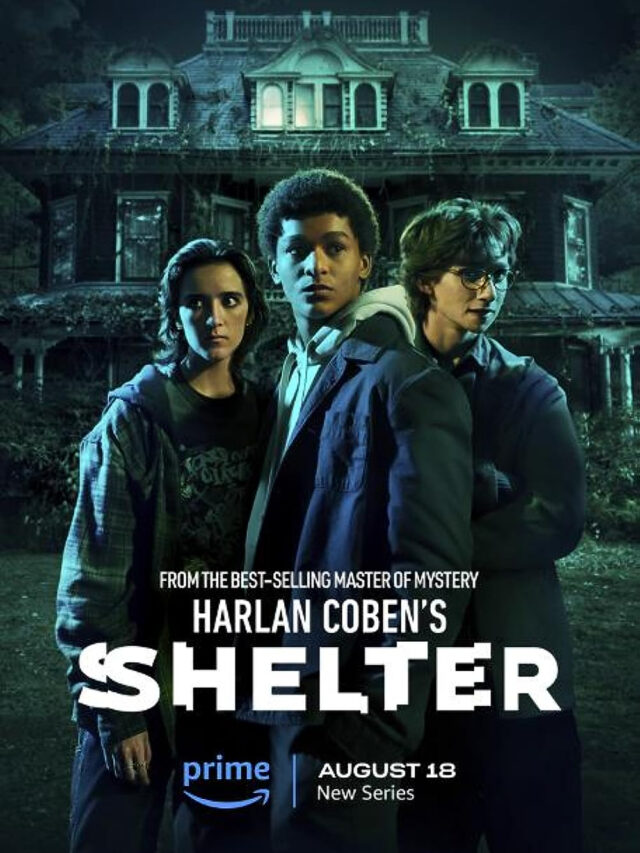“Wednesday,” the much-anticipated addition to the Tim Burton universe, ushers viewers into a fresh chapter in the life of 15-year-old Wednesday Addams, brilliantly portrayed by Jenna Ortega. However, despite the excitement surrounding this spin-off, it grapples with the daunting challenge of preserving the quintessential essence of the Addams family that has captivated fans for generations.
The Addams family is renowned for its unique blend of kookiness and spookiness, an irresistible concoction that has made them beloved figures in popular culture. The dark yet endearing eccentricities of Gomez, Morticia, Uncle Fester, and the rest of the clan have left an indelible mark on our hearts. With “Wednesday,” there were high hopes for a continuation of this captivating legacy.
Regrettably, the series falls short of capturing the very essence that defines the Addams family. It struggles to recreate the distinctive charm and eerie allure that have made these iconic characters so enduring. Instead, it ventures into uncharted territory, opting for a more teenage-centric narrative.
In the following analysis, we will explore the factors contributing to the lukewarm reception of “Wednesday.” Despite the formidable pedigree of Tim Burton’s cinematic universe, this spin-off seems to miss the mark when it comes to satisfying the cravings of die-hard Addams family aficionados.
A Troubled Transfer: From Piranhas to the Paranormal
Wednesday’s odyssey in this series embarks from a tumultuous incident at her previous school, an incident involving piranhas, and a bullying escapade that took a gruesomely unexpected turn. This misadventure culminated in her expulsion, precipitating her enrolment at Nevermore. Within the eccentric confines of this peculiar institution, she finds herself swiftly assuming the mantle of the “outcast” among peers who are, by societal standards, already considered “outcasts” themselves.
As Wednesday immerses herself in this bizarre new scholastic milieu, she begins to apprehend that it might just be as peculiar as she is. Yet, her sojourn at Nevermore unfolds as anything but a stroll in a paranormal park. It transpires that she has unwittingly attracted the unwanted attention of an enigmatic assailant, setting the stage for the series to delve into the labyrinthine realms of supernatural mysteries and uncanny occurrences.
This subplot establishes the groundwork for “Wednesday” to explore the uncanny and the otherworldly, a thematic pivot that departs from the traditional Addams family milieu. It plunges viewers into an enigmatic realm where shadows conceal secrets and the paranormal beckons with its eerie allure. In the subsequent sections, we will dissect how this shift in narrative direction contributes to the reception of the series.
Reimagining the Classics: Charles Addams’ Influence
To understand “Wednesday,” it’s essential to grasp its source material’s rich history. The show’s creators, Milles Miller and Alfred Gough, draw inspiration from Charles Addams’ “The Addams Family Cartoons.” These iconic cartoons first graced the pages of The New Yorker in 1938, introducing readers to the bizarre and endearing Addams family. Miller and Gough embark on an eight-episode journey to reimagine this beloved source material. With the legendary Tim Burton sharing directorial duties, “Wednesday” is infused with the eccentricity and offbeat charm that Netflix seeks to explore in contemporary pop culture. However, the series leans heavily on suspense, sidelining other vital elements necessary for a successful supernatural teen drama.
A Misplaced Mystery: Shadows Over Nevermore
In the original Addams Family series, the juxtaposition of the gothic and the bizarre against a backdrop of normalcy was a winning formula. In “Wednesday,” the mystery takes center stage, potentially overshadowing the fascinating array of resident werewolves, monsters, and other intriguing creatures that could have enriched the narrative. The production design, led by Mark Scruton, envisions Nevermore as an amplified, sinister institution seemingly tailored to Wednesday’s unique sensibilities. However, instead of building intrigue, this approach inadvertently dampens it as the central mystery unfolds. The show’s setting feels more like a shadowy caricature than a place where genuine intrigue can flourish.
Contextualizing Family History: Gomez and Morticia’s Legacy
One of the intriguing aspects of “Wednesday” is its exploration of the history of Wednesday’s parents, Gomez (Luiz Guzmán) and Morticia Gomez (Catherine Zeta-Jones). These characters are vital parts of the Addams family lore, and the series cleverly contextualizes their experiences of discrimination during their time at Nevermore. This narrative choice aligns with the show’s release timing, just before Thanksgiving, adding a layer of social commentary. As the mystery surrounding Nevermore’s history unfolds, matters become less captivating and more hurried in an attempt to provide a satisfying climax. This approach risks sacrificing depth for the sake of resolving plot threads.
Subplots Galore: An Overcrowded Narrative
“Wednesday” is weighed down by numerous subplots and stock characters that threaten to smother the central conflict. Across its eight-hour runtime, the series devolves into a convoluted mess of dark family secrets, nefarious monsters, and gruesome murders. Even the return of the original goth girl, Christina Ricci (who portrayed Wednesday in the 1990s films), as Miss Thornhill fails to infuse the series with the much-needed bite. The abundance of subplots and characters leaves little room for nuanced character development or exploration.
A Battle of Wits: Sarcasm and Wit Abound
The characters in “Wednesday” are perpetually armed with witty, sarcastic one-liners, a hallmark of Tim Burton’s signature style. Wednesday herself is no exception, offering sardonic commentary on various aspects of life. For example, she remarks, “I find social media to be a soul-sucking void of meaningless affirmation,” as she navigates the challenges posed by her cheerful roommate, Enid (Emma Myers). However, the show struggles to maintain a consistent tone, often oscillating between moments of intrigue and chaotic humor.
Jenna Ortega’s Endeavor: The Challenge of Portraying Wednesday
Jenna Ortega takes on the formidable task of infusing Wednesday with the dismissive thrill of an anti-hero. She navigates a character who possesses inner turmoil while leading viewers through a turbulent narrative. However, as the series unfolds, the chaotic blend of intrigue and antics becomes increasingly frustrating. For instance, the forced conflict involving two boys entangled in an uncomfortable love triangle with Wednesday feels contrived and exhausting. Her complex relationship with her mother, Morticia, takes an eternity to unravel and is then abruptly thrown into the whirlwind of larger plotlines.
In a Crowded Landscape: Wednesday Among Morbid Protagonists
“Wednesday” invites comparisons to characters like Sex Education’s Maeve Wiley and Stranger Things’ Eleven, both of whom are morbid, sarcastic female protagonists in their own right. However, Wednesday falls short of capturing the warmth and shrewdness required to carry a series forward. In a landscape teeming with such characters, she struggles to distinguish herself or leave a lasting impression.
An Inconsequential World: A Lack of Depth in Mythical Realms
“Wednesday” crams a multitude of narrative elements into its episodes, but much of it feels inconsequential within the show’s stylistically expansive world of mythical creatures and supernatural intrigue. Just as viewers believe they are approaching a resolution, the series takes an abrupt turn, hinting at the possibility of a Season 2. Unfortunately, the climax feels like a messy assortment of loose ends, leaving the audience yearning for a more definitive conclusion. The lack of closure may leave some viewers unsatisfied with the narrative’s direction.
The Tim Burton Touch: Distinctive but Not Without Flaws
While “Wednesday” benefits from the unmistakable Tim Burton touch, it still struggles to find its unique voice within the larger body of his work. The series remains watchable, thanks to its distinctiveness, but it falls short of being promising enough to generate eager anticipation for future seasons.
In conclusion, “Wednesday” stands as a lukewarm addition to the Tim Burton universe. While it brings fresh perspectives to the Addams family legacy, it fails to deliver the quirky charm and eerie allure that fans hold dear. Despite its potential, the show stumbles in its execution, leaving viewers craving more substance and less spectacle. As it stands, “Wednesday” remains an interesting addition to the Addams family saga but doesn’t quite hit the mark as a standalone series.
For more thrilling reviews visit the Webseries Hub. Embark on a journey through the extraordinary and the extraordinary.






























